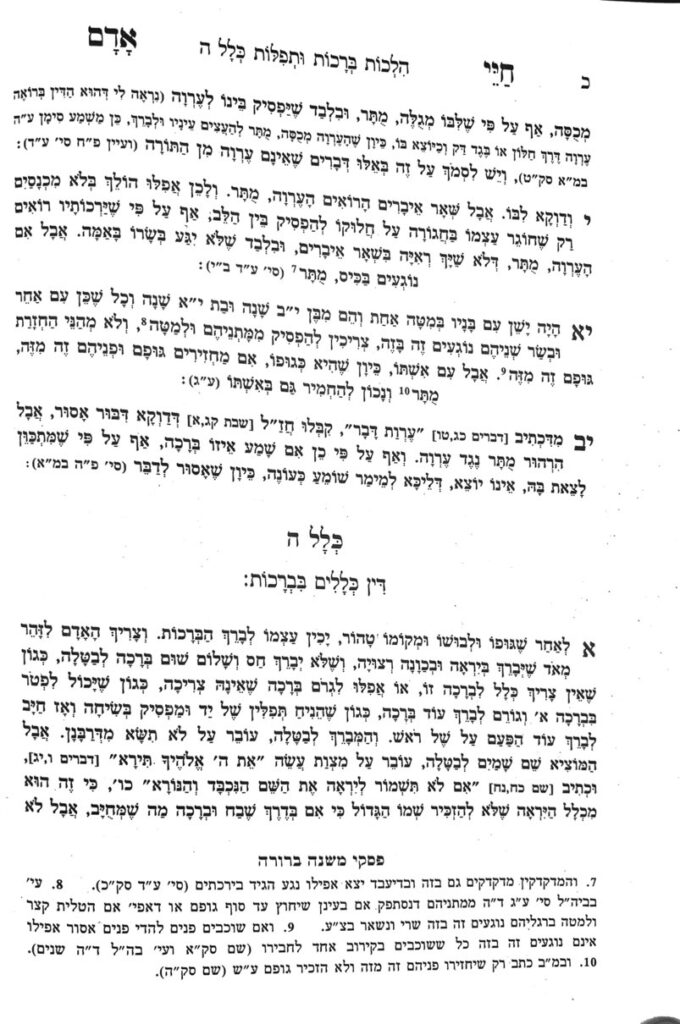We are continuing in siman 12. Yesterday, we learned that the Taz and Shach hold that shomeah k’oneh applies even when one does not have intent to fulfill an obligation.
If we look at the language of the Taz, he says that shomeah k’oneh applies when one individual is focusing on listening to the other. We learned that shomeah k’oneh is part of the concept of dibbur, which we will translate as speaking. One can say words, but those words only enter the realm of speaking when there is communication, I.e., when they are spoken to another human. If A is listening to B, even if they do not have intent to be yotzei anything, there is communication and therefore speech. If B is speaking, and A just happens to be heard it, it would appear from the Taz that shomeah k’oneh would not apply.
Furthermore, according to all approaches, if one hears words of torah or tefillah from a recording, there would not be an issue of shomeah k’oneh.
We mentioned this concept previously, regarding the halachos of birchos hatorah. According to the Shulchan Aruch, one is allowed to think in learning before reciting birchos hatorah. The Shaarei Teshuva writes that even according to the Shulchan Aruch, shomeah k’oneh would be a problem before reciting birchos hatorah. We learned that Rav Sholom Shapiro, shlita, points out that it does not apply to recordings. The Piskei Teshuvos (74:2) writes this as well.
Regarding learning from a sefer, Rav Shlomo Zalman holds that as long as one does not verbalize the words they are reading, it is considered hirhur and they could learn in the presence of ervah.
Regarding writing words of torah in the presence of ervah, although one would have thought that it would be no different that hirhur, we find that it is equated with speech, so one should not write down words of torah in the presence of ervah.
Regarding the machlokes of the Taz and Magen Avraham whether shomeah k’oneh applies even when one is not trying to be yotzei an obligation, but just listening, it seems that the Shulchan Aruch agrees with the opinion of the Taz, that one should not listen in the presence of ervah. Even though the Chayei Adam is only concerned with shomeah k’oneh when one is trying to be yotzei, one should not listen to words of torah or tefillah in the presence of ervah, based on the Taz.
The concept of shomeah k’oneh works on a deoraysa level, so closing one’s eyes is not sufficient. If the ervah is only derabanan (i.e, a non-primary ervah), closing one’s eyes would be sufficient.
We will start hilchos Shabbos this coming Sunday. Please share with your friends and shuls the attached flyer, and ask them to join
Summary
It is muttar to think in learning in the presence of ervah.
The Chayei Adam holds it is muttar to hear another person speak in learning, but assur to be yotzei any obligations which require shomeah k’oneh. However, the Shach and Taz hold it is assur to hear another person speak in learning as well, and one should follow the Shach.
However, one could listen to a recording.
One can read from a sefer without verbalizing the words in the presence of ervah.
One cannot write words of torah in the presence of ervah.



